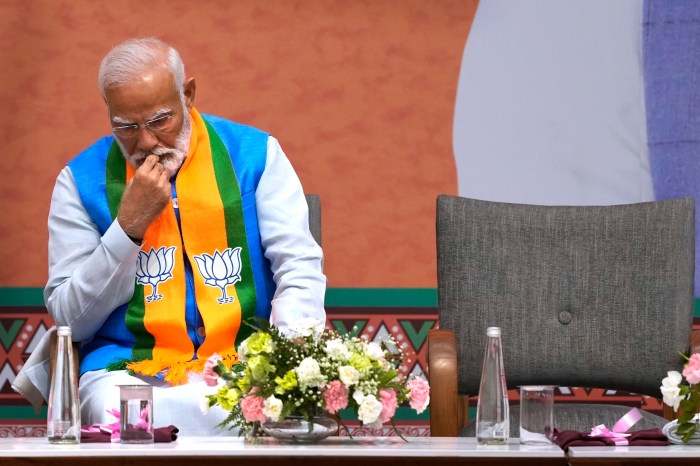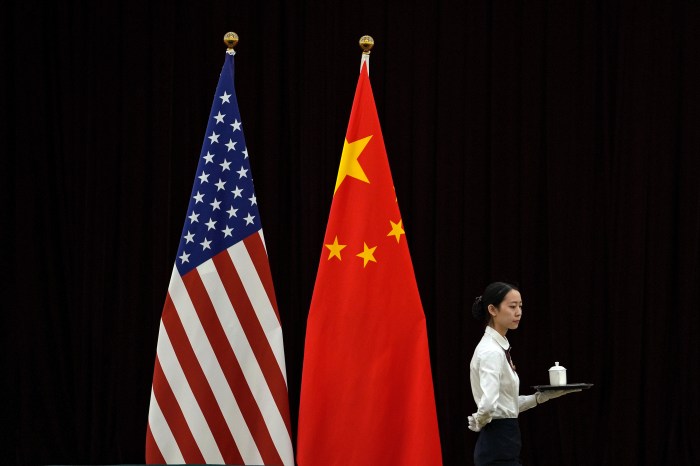By Krisztina Than and Gergely Szakacs
BUDAPEST, Hungary (Reuters) – Prime Minister Viktor Orban won a third straight term in power in Sunday elections after his anti-immigration campaign message secured a strong majority for his party in parliament, preliminary data showed.
The rightwing nationalist prime minister projected himself as a savior of Hungary’s Christian culture against Muslim migration into Europe an image which resonated with millions of voters, especially in rural areas.
According to preliminary results with 85 percent of votes counted, National Election Office data projected Fidesz to win 133 seats, a two-thirds majority in the 199-seat parliament. Nationalist Jobbik was projected to win 26 seats, while the Socialists were projected as third with 20 lawmakers.
Two smaller leftist parties, DK and LMP, won nine and eight seats respectively.
The victory could embolden Orban to put more muscle into a Central European alliance against the European Union’s migration policies. Orban, Hungary’s longest-serving post-communist premier, opposes deeper integration of the bloc and – teaming up with Poland – has been a fierce critique of Brussels’ policies.
The election produced a turnout of around 70 percent, exceeding the past three elections. Orban is due to speak soon, deputy prime minister Zsolt Semjen said.
Some analysts say Fidesz’s support could be the strongest in small towns and villages.
With his firm grip on state media and his business allies in control of regional newspapers, Orban’s message was amplified in the countryside. There, many people only watch the state television news channel, which has showed immigrants causing trouble in western European cities night after night.
Orban has far-right admirers across Europe who like his tough line on migrants and his smooth victory shows that his single-issue campaign, arguing that migration poses a security threat, had paid off.
MIGRATION “LIKE RUST”
Critics say Orban has put Hungary on an increasingly authoritarian path and his stance on immigration has fueled xenophobia.
After casting his vote in a wealthy district of Budapest, he said he would stand up for Hungary’s interests and said Hungary was a loyal member of international organizations.
“We love our country and we are fighting for our country,” Orban said.
Asked by journalists if he was fighting the European Union, Orban said: “The EU is not in Brussels. The EU is in Berlin, in Budapest, in Prague and in Bucharest.”
Orban’s strong win could boost other right-wing nationalists in Central Europe, in Poland and in neighboring Austria, and expose cracks in the 28-nation EU.
The strongest opposition party is the formerly far-right Jobbik, which has recast its image as a more moderate nationalist force. It has been campaigning on an anti-corruption agenda and urged higher wages to lure back hundreds of thousands of Hungarians who have left Hungary for western Europe.
The EU has struggled to respond as Orban’s government has, in the view of its critics, used its two landslide victories in 2010 and 2014 to erode democratic checks and balances. It has curbed the powers of the constitutional court, increased control of the media and appointed loyalists to key positions.
Orban is credited with keeping the budget deficit under control, reducing unemployment and some of Hungary’s debt, and putting its economy on a growth track.
On Friday, at his closing campaign rally, he vowed to protect his nation from Muslim migrants, saying: “Migration is like rust that slowly but surely would consume Hungary.”
The anti-immigrant campaign has gone down well with many of the roughly two million core voters of Fidesz.
“My little daughter must be my primary concern, to make her future safe. Safety is first,” said Julia Scharle, 27, holding her child outside the polling station where Orban cast his vote. She would not reveal her voting preference.
In March the government gave pre-election handouts to millions of families and pensioners.
Orban is expected to continue his economic policies, with income tax cuts and incentives to boost growth, analysts have said.
His business allies are expected to expand their economic domains. Businessmen close to Fidesz have acquired stakes in major industries like banking, energy, construction and tourism, profiting from EU funds.
(Writing by Krisztina Than; additional reporting by Sandor Peto and Marton Dunai; editing by Andrew Roche)


















